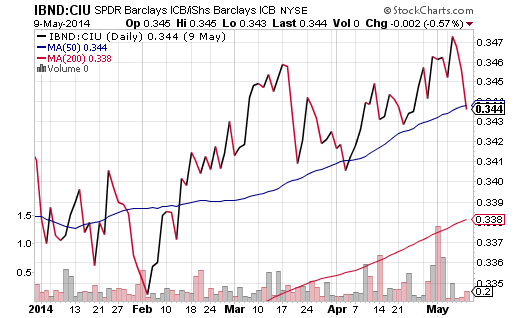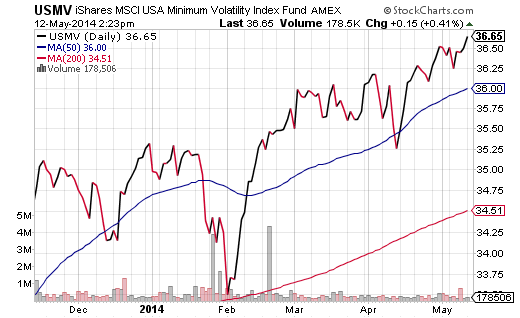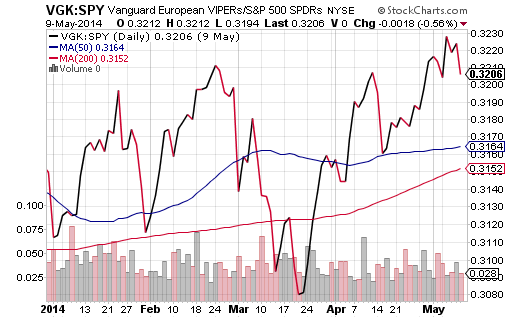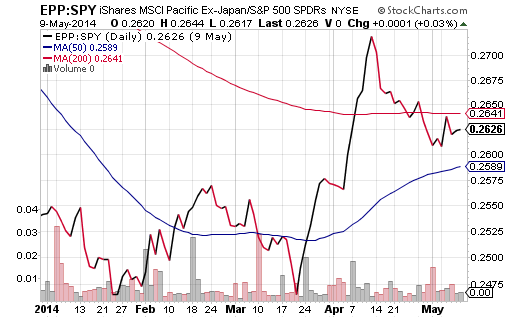U.S. corporate earnings growth has slowed. Heck, if you are looking at companies in the Dow Industrials, earnings have actually declined for three of the last four quarters. Yet record highs for broader U.S. stock benchmarks continue stealing the headlines.
Are U.S. corporations genuinely thriving? In the aggregate, one can say that they’ve increased profitability through refinancing high interest rate debt into low interest rate debt, as well as kept down the cost of human resources compensation packages. Yet they are not selling products and services at a pace commensurate with longer-term success.
Well, aren’t the fundamental underpinnings of the economy strong? I suppose that depends upon whom you ask.
The percentage of working-aged individuals sits at 35-year lows. Yet others might point to the trend of headline unemployment improving over the course of the current five-year recovery. Economic growth in the first quarter came in at a shockingly low 0.1%. However, some explain away the weakness as a bump in the road due to harsher-than-usual weather patterns. Both home sales and home prices on the national stage have been declining since the previous summertime. Nevertheless, a number of analysts maintain that as mortgage rates have stabilized, and employment continues to pick up, demand for residential real estate will resume.
In some ways, none of the mixed messages matter. If large-cap U.S. equities can rocket to new records – in spite of questionable price-to-earnings ratios and in spite of economic uncertainty – you should continue to participate. Keep in mind, though, there are scores of domestic sub-sectors that have broken down below respective long-term trendlines (e.g., home builders, banks, Internet “tech,” etc.). I am sticking with less volatile U.S. assets like iShares USA Minimum Volatility ETF (NYSE:USMV)).
What should you do if you have lightened up on riskier areas of the U.S. market and you now have a larger-than-desired money market position? From my vantage point, the international stock and bond arenas have more going for them than they have had in quite some time.
Consider the circumstances in Europe. The Russia-Ukraine conflict remains a consistent source of uneasiness. Europe’s economy struggles to expand. Meanwhile, corporate profits have underachieved as the common currency for the euro-zone remains stubbornly high. On the other hand, the European Central Bank (ECB) has strongly indicated a bias towards easing interest rates in June. Not only is this likely to depreciate the euro-dollar and benefit the exports of major corporations, but central bank stimulus remains one of the biggest reasons for investor appetite in risk assets.
Not sure if ECB stimulus is all that important? Ever since ECB head Mario Draghi began hinting about taking action a few months ago, the relative strength of European stocks compared to U.S. stocks surged. This can be seen in the Vanguard Europe (ARCA:VGK):S&P 500 SPDR Trust ETF (ARCA:SPY) price ratio.
Even international corporate bonds have been stronger than U.S. corporate bonds. While it is possible that this turn of events may simply be a global search for higher yields, there may be other forces in play; that is, yields may be more likely to decline in an area of the world where the central bank is stimulating its economy as opposed to one where the central bank is paring back (a.k.a. tapering) its stimulus. The SPDR Barclays International Corporate Bond ETF (NYSE:IBND)): iShares Barclays Intermediate Credit Bond (NYSE:CIU) price ratio demonstrates the trend.

It’s not just Europe either. The Asia-Pacific region (ex-Japan) has also been picking up momentum. (See the iShares MSCI Pacific Ex-Japan (ARCA:EPP):S&P 500 SPDR Trust price ratio below). Recent intrigue can be tied to attractive share prices, China financial market reforms as well as speculation that the Chinese economy may have hit its lowest ebb.
Since 2014 began, I have owned a number of ETFs for my clients that are benefiting from shifting tides. In many instances, I combined single-country funds like iShares MSCI New Zealand (NYSE:ENZL) with broad-based international assets like Vanguard FTSE All-World (NYSE:VEU). The approach has allowed me to overweight high conviction assets while simultaneously maintaining a diversified presence globally.
Disclosure: Gary Gordon, MS, CFP is the president of Pacific Park Financial, Inc., a Registered Investment Adviser with the SEC. Gary Gordon, Pacific Park Financial, Inc, and/or its clients may hold positions in the ETFs, mutual funds, and/or any investment asset mentioned above. The commentary does not constitute individualized investment advice. The opinions offered herein are not personalized recommendations to buy, sell or hold securities. At times, issuers of exchange-traded products compensate Pacific Park Financial, Inc. or its subsidiaries for advertising at the ETF Expert web site. ETF Expert content is created independently of any advertising relationships.



